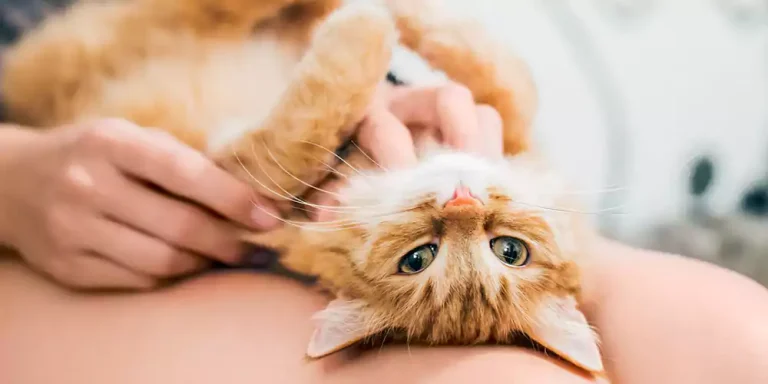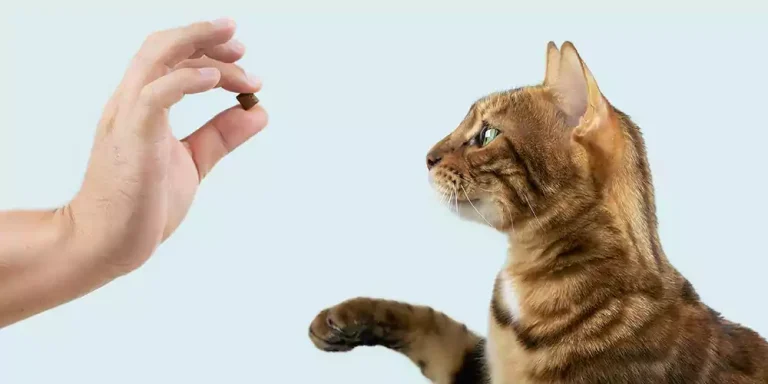How Often Do You Take a Cat to The Vet

We understand that owning a cat is a big responsibility, and one of the most critical aspects of this responsibility is taking your feline friend to the vet regularly. But the question is, how often do you take a cat to the vet?
My name is Aly; today I’m going to tell you through this article how often you take a cat to the vet; like you guys, I’m a cat parent too, and believe me, today I’m sharing my experience with you guys through this article, I’ll provide you with all the information you need to make informed decisions about your cat’s healthcare, including tips on how to keep your furry friend healthy and happy. 🙂
The frequency of veterinary checkups for cats can vary based on age, health status, and lifestyle. In general, it is recommended that adult cats visit the vet at least once a year for routine checkups.
However, if your cat has underlying health issues or is considered a senior cat (over seven years old), more frequent checkups may be recommended. Additionally, if your cat spends much time outdoors or has a higher risk of exposure to certain diseases, your vet may recommend more frequent checkups.
Importance of Regular Veterinary Checkups for Cats
Just like humans, cats can develop health issues that require medical attention. However, since cats are experts at hiding their discomfort, it can be difficult to tell when they are sick. Regular veterinary checkups can help identify any health problems early on, allowing for prompt treatment and better outcomes.
Routine checkups can help keep your cat up-to-date on essential vaccinations and preventable treatments, such as flea and tick prevention. Regular vet visits can also help establish a baseline for your cat’s overall health, which can help detect any changes in its health over time.
Age and Well-Being
How often you take a cat to the vet depends on its age and health. Some cats need more frequent check-ups than others. The experts who provide veterinary services recommend that cats be seen at least twice a year until they reach about two years of age to ensure that they stay healthy.
Older cats may require frequent visits as they are more likely to develop chronic medical issues. Adult cats with ongoing health problems may need weekly or even daily vet visits to maintain their quality of life.
Cats with specific ailments may require more frequent visits to the veterinarian. Some diseases like diabetes or kidney disease, for example, can be managed by a special diet and regular insulin injections that only a trained vet can provide. Sick cats may need daily care until they get better.
Cats without diseases or chronic conditions may only need to see the vet once a year for an annual check-up. How often do you take a cat to the vet? Be sure to let them know if anything has happened with your pet lately.
How Often Do You Take a Cat to The Vet For Check-Up
If you have a kitten, you must take them to the vet for their first check-up within a month of bringing them home. Ideally, new kittens should be taken to the vet within ten days of adoption to make sure they’re healthy and to start getting them comfortable with vet visits. This is crucial to ensure your kitten stays healthy and gets the best possible care.
Yearly Check-Ups for Your Cat
It’s essential to take all cats to the vet at least once a year for a thorough check-up, where they can be evaluated for any health issues and vaccinated against dangerous diseases. During this annual visit, your cat’s blood work and other diagnostics will also be performed, so it’s crucial to ensure your cat is healthy and happy.
If you notice any health concerns, such as lethargy or changes in appetite, it’s essential to take your cat to the vet immediately. It’s also crucial to contact the veterinarian if any changes in your pet’s behavior, appearance, or litter box habits last for more than two weeks. By staying on top of your cat’s health with regular vet visits and prompt attention to any changes, you can help ensure your furry friend stays healthy and happy for years.
What to Expect During Your Cat’s Yearly Check-Up
Your cat will receive a thorough examination during a yearly check-up to ensure they’re healthy and happy. This includes checking their weight and body condition, evaluating their diet, and conducting a physical exam with a heartworm or flea check.
Your vet may administer a vaccination booster if needed and perform a blood test to check organ function and screen for common cat diseases. These steps are crucial for maintaining your cat’s health and well-being.
If the vet hasn’t seen your cat in a while, don’t worry! Simply schedule a visit for a yearly examination to ensure your furry friend stays healthy and happy. In general, it’s recommended that cats receive yearly check-ups and routine care twice a year to keep them in tip-top shape. By staying on top of your cat’s health with regular vet visits, you can ensure they feel fine, stay healthy, and lead a happy life.
What to Expect During Your Cat’s Wellness Visit
A wellness visit is similar to a yearly check-up but has a few extra components to keep your furry friend in good condition. During a wellness visit, your vet will evaluate your cat’s weight and body condition and discuss their diet with you. They will also conduct a thorough physical exam, including a heartworm test or flea prevention treatment if needed.
Your cat may also receive a vaccination booster if they’re due for one, as there’s no harm in getting an extra dose. The vet may perform urine and blood tests to monitor organ function and check for common cat diseases. They’ll also discuss any new medications your cat is taking and their potential effects and conduct a dental exam to check their teeth.
These components are completed with a quick and easy exam that will help keep your cat feeling its best. You can help ensure your feline friend stays healthy and happy for years by scheduling a wellness visit.
Recognizing and Addressing Your Cat’s Health Issues
Cats are ace at concealing their torment or ailment, which makes it even more important to watch out for potential medical problems. On the off chance that your feline is displaying any strange conduct, for example, acting listless or restless, it could be an indication of a fundamental issue. Continuously investigate these progressions with a veterinarian to ensure that your feline is sound and feeling good.
Additionally, remember that felines have an incredible feeling of hearing and can be touchy to boisterous sounds. Attempt to be thoughtful to your pet by keeping them comfortable when taking them to the veterinarian.
How to handle a pet emergency?
When your pet requires immediate attention due to an accident or illness, it’s essential to take them to the nearest vet without delay. Contact your local emergency vet for guidance if you’re unsure what to do. Sure, signs and symptoms you should be aware of may indicate a visit to the vet is necessary soon.
These include changes in eating habits like refusing food, vomiting, diarrhea, constipation, and weight loss despite an increase in appetite, and changes in litter box habits such as not using the litter box or peeing outside of it. If your cat is restless and doesn’t want to be held for extended periods, take them to their veterinarian immediately. The sooner you can have these issues examined, the better.
Even though cats are known for being independent and aloof, it’s important to remember that they still need their humans to look out for them. If you have a cat, there’s no better way of showing them love than by taking them to the vet regularly for a yearly checkup.
Older cats may also benefit from frequent visits if they develop chronic conditions like diabetes or arthritis. And always remember, never hesitate to take your kitty to the vet if they show signs of illness or injury.
Signs that Your Cat Needs to See a Vet
While regular checkups are essential, it’s also crucial to recognize the signs that your cat may need medical attention between appointments. Here are some common signs that your cat may be sick and in need of a vet visit:
- Lack of appetite or thirst
- Changes in behavior or personality
- Weight loss or gain
- Vomiting or diarrhoea
- Difficulty urinating or defecating
- Lethargy or decreased activity levels
- Changes in coat quality or skin appearance
- Eye or nose discharge
- Sneezing or coughing
If you notice any of these symptoms in your cat, you must make an appointment with your veterinarian as soon as possible.
Tips for Keeping Your Cat Healthy
There are several things you can do to help keep your cat healthy and happy:
- Feed your cat a balanced and nutritious diet
- Provide plenty of clean water
- Regularly clean your cat’s litter box
- Encourage exercise and playtime
- Keep your cat indoors to reduce the risk of exposure to diseases and injuries
- Brush your cat’s teeth and fur regularly
- Keep your cat up-to-date on vaccinations and preventative treatments
Following these tips and scheduling regular veterinary checkups can help ensure your feline friend stays healthy and happy for years.
FAQ’s
Okay, now you know how often you take a cat to the vet. If you want to read more about pets, stay in touch with Pet Doubts.



